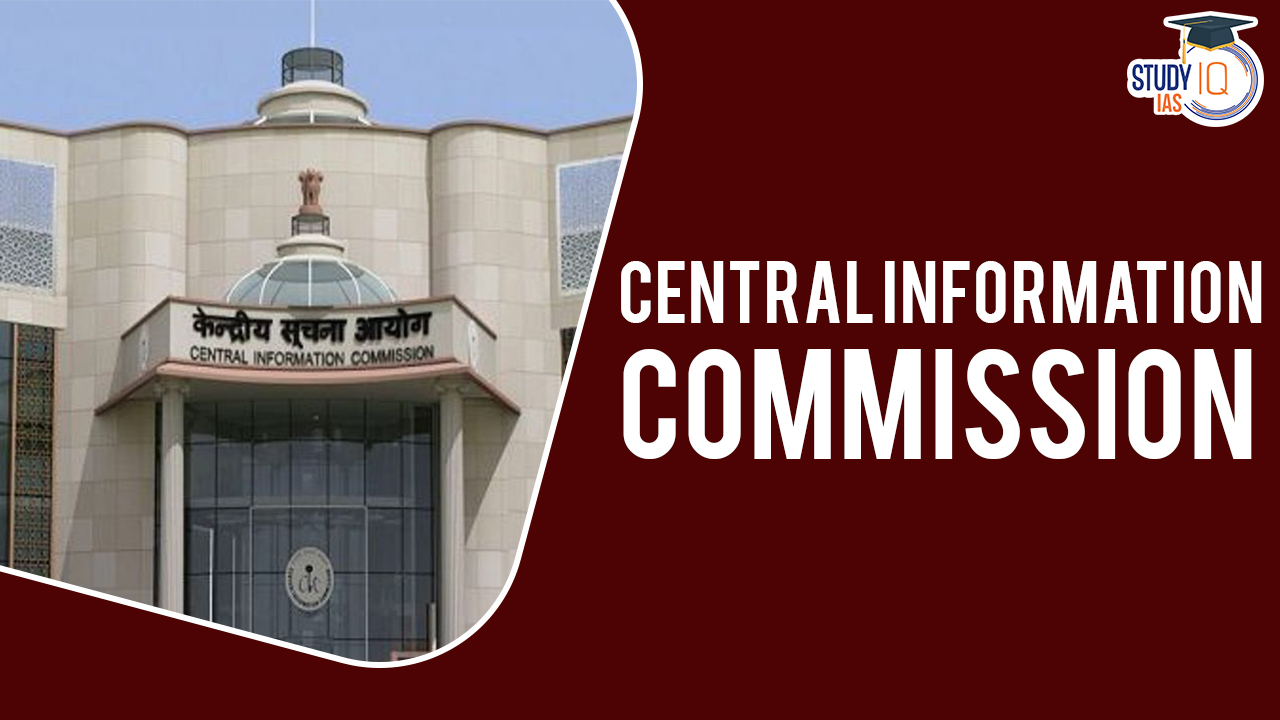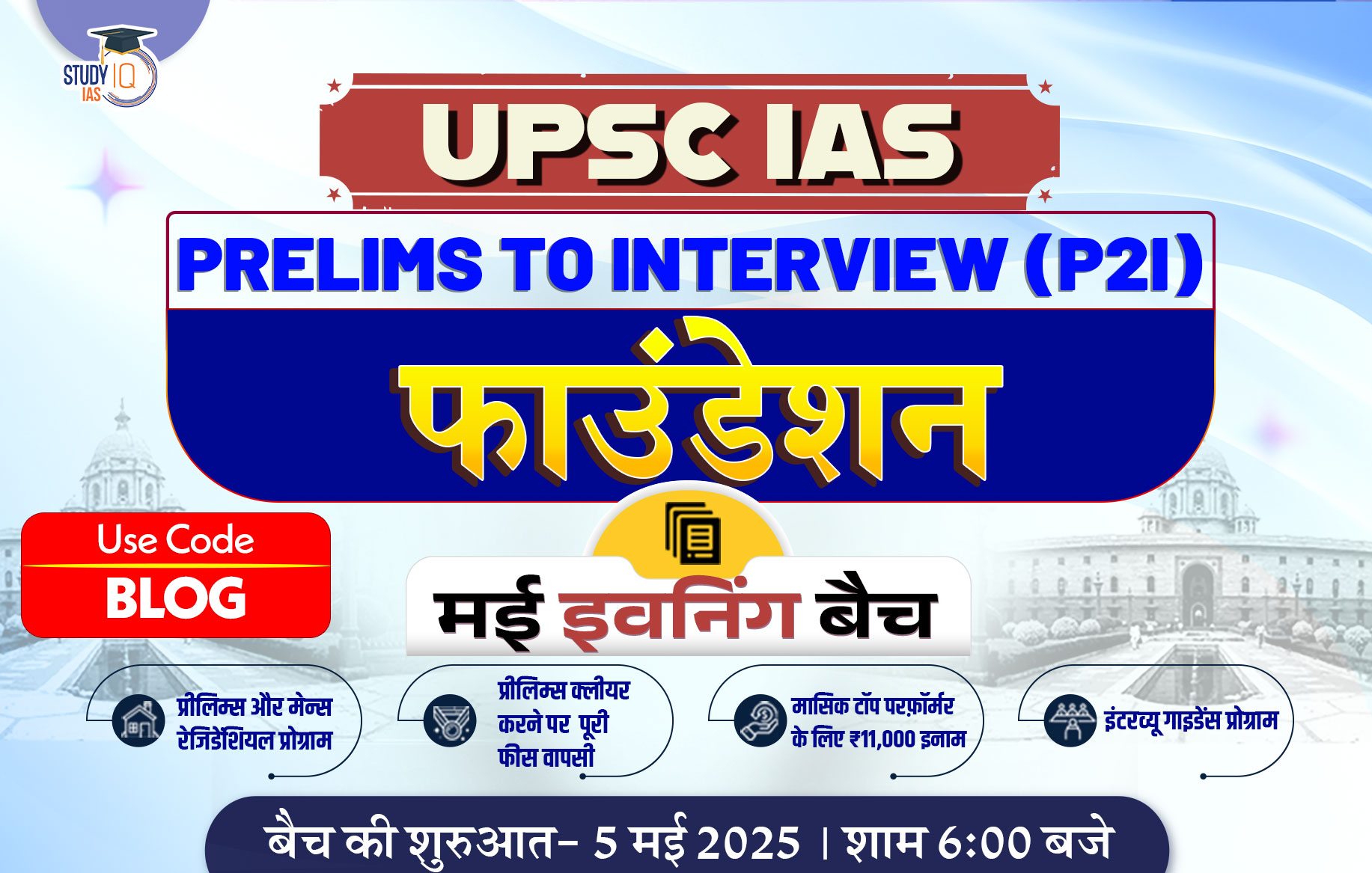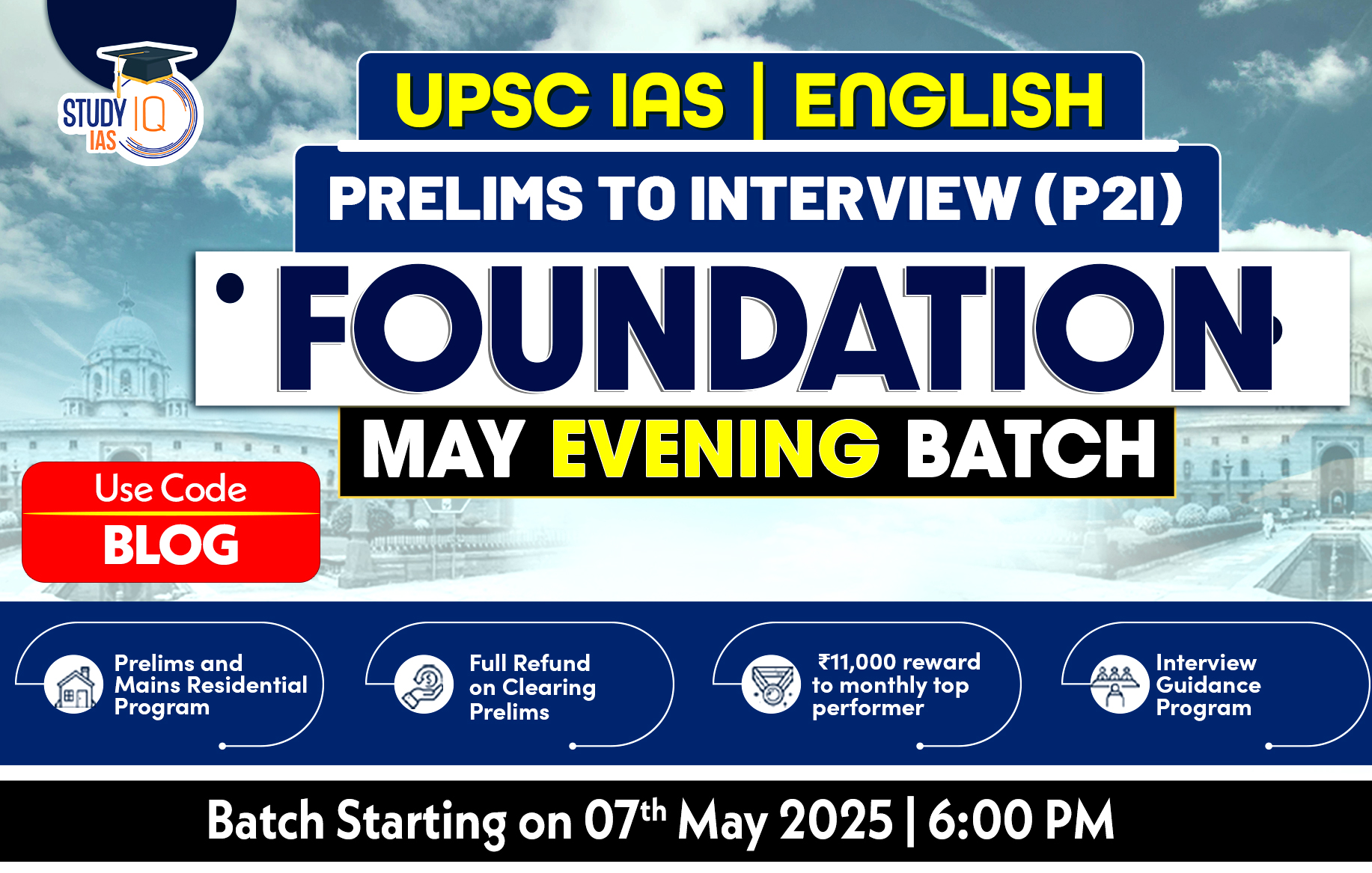Table of Contents
Central Information Commission
The Right to Information Act of 2005 established the Central Information Commission (CIC), an impartial organization. The commission looks into grievances and appeals against government agencies, public sector businesses, financial institutions, and other organizations operating in Union territories. For India’s democracy and effective government to function, it is a crucial authority.
The Central Information Commission is an important part of Indian Polity which an important subject in UPSC Syllabus. Students can also go for UPSC Mock Test to get more accuracy in their preparations.
Central Information Commission: History
The Right to Information Act, which was passed in 2005, included the creation of the Central Information Commission. Powerful and independent, the Central Information Commission looks into complaints and renders judgments on appeals. It receives grievances and appeals concerning the offices of the Central Government and Union Territories, financial institutions, public sector organizations, and other issues.
All Central Public Authorities are subject to the Commission’s control. The tenure, terms of service, and compensation of the Chief Information Commissioner (CIC) and Information Commissioners (ICs) at the federal and state levels were outlined in the parent statute, the RTI Act of 2005. These clauses were removed by the RTI (Amendment) Act of 2019, which stated that the central government will specify the time and amount of compensation through regulations.
Also Read: State Information Commission
Structure of Central Information Commission
The Chief Information Commissioner (CIC) is appointed by the President, based on recommendations from a committee that includes the Prime Minister, the Leader of the Opposition in the Lok Sabha, and a Union Cabinet Minister chosen by the Prime Minister.
- The CIC and Information Commissioners serve for a term set by the Central Government or until they turn 65, whichever comes first. They cannot be reappointed.
- The CIC is supported by 10 Information Commissioners, making a total of up to 11 members in the CIC.
- Members should have notable experience in fields like law, science, governance, social service, journalism, or administration. They cannot be MPs or MLAs and must not be affiliated with any political party, engaged in business, or hold a profitable office.
- The current CIC is Heeralal Samariya.
Removal of Central Information Commission
Members of the Central Information Commission can be removed by the President for reasons such as:
- Bankruptcy
- Unsound mind or physical incapacity
- Imprisonment for a crime
- Engaging in paid employment
A member can also be removed for misbehavior or incapacity if found guilty in a Supreme Court inquiry. Additionally, members can resign by sending a resignation letter to the President of India.
Also Read: Special Officer for Linguistic Minority
List of Central Information Commissioners
| Central Information Commissioners 2005 to 2025 | |
| Name | Term of Office |
| Wajahat Habibullah | 2005-2010 |
| A.N. Tiwari | 2010-2013 |
| S. Mishra | 2013 |
| Deepak Sandhu | 2013-2014 |
| Sushma Singh | 2014-2015 |
| Rajiv Mathur | 2015 |
| Vijay Sharma | 2015-2016 |
| Radhakrishna Mathur | 2016-2018 |
| Sudhir Bhargava | 2019-2020 |
| Bimal Julka | 2019-2020 |
| Yashvardhan Kumar Sinha | 2020-2023 |
| Heeralal Samariya | 2023-2025 |
Central Information Commission Power and Function
The Central Information Commission (CIC) has the authority to investigate issues on its own if there are valid reasons. It ensures that public authorities follow its decisions. The CIC can also receive and look into complaints from anyone who:
- Has not gotten a response to their request for information in a given time.
- Thinks the information received is incomplete, false, or misleading.
- Could not submit a request because no officer was appointed.
- Believes the fees charged are unreasonable.
- Was denied the information they asked for.
The CIC can examine any records held by public authorities, and those records must be provided during the inquiry—nothing can be hidden. During these inquiries, the CIC has civil court powers, which include:
- Summoning people to appear and testify under oath.
- Compelling the production of documents.
- Inspecting and discovering documents.
- Accepting evidence through affidavits.
- Requesting public records from any office or court.
- Issuing summons for documents or witnesses.
Also, the CIC submits an annual report to the Government of India on how the Act is being implemented, which is then presented to both Houses of Parliament.
Challenges Faced by the Central Information Commission (CIC)
When an appeal or complaint is filed with the Central Information Commission, it typically takes 388 days (more than a year) to resolve it. It is among the most worrisome problems. Since there has never been any paperwork about the Central Information Commission’s selection criteria, there has always been a problem with transparency in the appointment process.
Rarely are public officials held accountable for breaching the law. The CIC still has openings despite repeated orders from the court. The Supreme Court recently decided that the state information commissions and the federal information commission must communicate to the public on the most recent developments on the cases that are pending and the open positions in those commissions.
Central Information Commission and RTI Act
India has used the Right to Information Act and structural reform to fight corruption. Files have been moved with accountability and transparency in open and transparent government operations. Greater transparency has been achieved thanks to the Right to Information Act of 2005 than through any other prior effort.
The creation of the Central Information Commission and State Information Commission is covered by Sections 12 and 15 of the RTI Act, 2005. Some RTI Act of 2005 provisions pertaining to the Central Information Commission are:
- Section 13: The Central Government determines tenure, pay, benefits, and service requirements.
- Section 14: The Information Commissioner and Chief Information Commissioner may be removed. Specifically, the President may remove them on the advice of the Supreme Court.
The Right to Information Act of 2005 and the Central Information Commission have fundamentally altered how government functions and increased accountability and transparency. Accountability (democracy is not a periodic or a five-year event, but a daily plebiscite) and democratic weaknesses are addressed via transparency.
Central Information Commission Draft Rules
The prior five-year term with comparable pay and benefits to the Election Commission has altered. Now the government determines their tenure, authority, living conditions, benefits, and salary. The Central Information Commission’s compensation and benefits should be comparable to those of the Cabinet Secretary, which is considerably less than those of the Election Commission, according to the most recent department of personnel and training.
It also suggests that they will be moved to lower positions in the Table of Precedence. If this is approved, their monthly allowances will be reduced by ₹10000, and the Chief Election Commissioner and Election Commissioner will no longer receive certain extra benefits.
Central Information Commission UPSC
The empty position on the commission has to be filled as soon as practicable. The number of people needed to effectively operate the commission should be determined after a thorough investigation. All public entities should be held responsible to the public under the RTI Act. Additionally, this would end the use of dark money in elections. Additionally, commercial businesses involved in public works projects ought to be covered by the Act.Students can read all the details related to UPSC by visiting the official website of StudyIQ UPSC Online Coaching.


 Private Member Bill, Key Provisions, Sig...
Private Member Bill, Key Provisions, Sig...
 Article 21 of Indian Constitution, Right...
Article 21 of Indian Constitution, Right...
 National Security Advisory Board Revampe...
National Security Advisory Board Revampe...





















